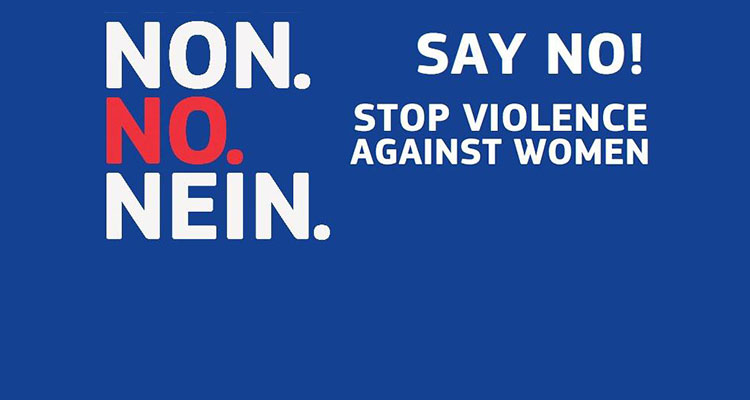“Ahead of the International Day for the Elimination of Violence against Women, we reaffirm our commitment to ending violence against women and girls.
Violence against women is a grave violation of human rights and yet it is still widespread across the world. The perception that harassment or being violent towards women is normal and acceptable is wrong and must change. We all have the responsibility to say no, openly reject acts of violence or harassment, and stand by the victims.
Violence against women happens everywhere: at home, at work, in schools and universities, on the street, in public transport and online. It can happen to any woman, affecting her general well-being and preventing her from fully participating in society. Around half of women in the European Union have experienced verbal, physical or online sexual harassment. According to Eurostat, 80% of trafficking victims in the EU are female.
Around the world, about 12 million girls under the age of18 are married every year – one every two seconds. Married girls often quickly become pregnant, drop out of school and are at higher risk of domestic violence than women who marry as adults. At least 200 million women and girls today have undergone female genital mutilation, which is still practiced in around 30 countries. Women in migration are particularly vulnerable and more exposed to abuse or violence.
Eradicating violence against women and girls is at the heart of the 2030 Agenda for Sustainable Development. It is a first step towards global peace and security, a precondition for the promotion, protection and fulfilment of human rights, gender equality, democracy, and economic growth.
The European Union has put substantial actions in place to ensure violence against girls and women is ended once and for all. Our action is bearing fruit. Things have started to change.
Over the last two years, we supported more than 1.5 million girls and women with services for protection and care related to female genital mutilation. 3000 communities, representing 8.5 million people, have publicly announced that they are abandoning this practice. On child marriage, the EU reached over 1.6 millionindividuals through initiatives designed to change attitudes and practices regarding girls’ rights.
Global challenges require global solutions that can best be formulated and then implemented working closely together with our international partners and through effective multilateralism. In December last year, with the OECD, the Council of Europe and UN Women we agreed on a global action to combat violence against women. We are stepping up our cooperation and called on world leaders from both public and private sectors to join the intensified global effort to fight violence against women.
In partnership with the United Nations, we have launched our Spotlight Initiative, a global, multi-year initiative focused on eliminating all forms of violence against women and girls. With an unprecedented initial investment of €500 million, we are protecting and giving voice to those women and girls who have been silenced by their societies and now want to speak up. We are also leading the global Call to Action on Protection from Gender-Based Violence in Emergencies initiative. This action brings together nearly 80 aid actors to foster accountability for addressing gender-based violence.
We are also working on concluding the EU accession to the Council of Europe’s Istanbul Convention on preventing and combating violence and harassment against women, which provides victims with the right of protection and support.
We must finally eliminate gender-based violence. The European Union will continue to work relentlessly towards this goal. A life free of violence is an inalienable fundamental right: depriving women and girls from freedom, means depriving the world from freedom.”



